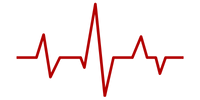ReadersKey™: Practicing Dynamic Harmony
Research Edition - Decode Your Diagnosis - Chapter 8
Summary
Stress isn’t the enemy; being thrown off-balance is. Dynamic harmony is the habit of re-balancing your Elements, mind, body, and soul, so you keep moving forward, even when life won’t sit still.
Titan Takeaway
Most Titans try to “beat” stress. In reality, stress is part of the terrain. Your job isn’t to erase it, but to regulate it so your Elements stay aligned while conditions change.
This week’s research shows resilience isn’t a fixed personality trait; it’s a trainable process. One recent review across multiple chronic conditions found that higher resilience consistently pairs with better self-care, things like medication adherence, movement, sleep, and pacing. That link matters, because self-care is where daily outcomes are actually won.
A newer model, ADAPTOR, makes this practical:
Reserve capacity (your resources and supports),
Adaptation (your responses and skills), and
Consequences (your outcomes) move together like a three-gear system under different levels of stress exposure. When stress spikes, your reserve (people, routines, beliefs) can cushion the impact while you adapt (reframe, breathe, plan, rest). When stress eases, keeping reserve and adaptation in sync strengthens recovery and momentum.
The body isn’t the only lever. Mind skills (like reframing and attention training) reduce the noise from your inner critic (your inner catastrophiser). Soul work (purpose, values, meaning) fuels motivation so you keep showing up. The family system matters too; shared beliefs and coping routines act like scaffolding that stops small setbacks becoming big flare-ups.
Dynamic harmony is not a one-time fix. It’s a repeatable pattern:
sense → adjust → realign
Small, consistent adjustments done across all three Elements add up to confidence you can feel.
Key Insight
Dynamic harmony is the skill of re-balancing. You don’t need perfect conditions; you need consistent micro-adjustments across mind, body, and soul.
Deep Knowledge Question
What changes when you stop fighting stress and start using it as information to adjust your Elements in real time?
Research-Backed Breakdown
Resilience → Better Self-Care (and Outcomes)
A recent systematic review and meta-analysis found a consistent, positive relationship between resilience and self-care across 11 chronic conditions and 9,000+ people. Translation: when resilience skills are present, the dials for daily behaviours move in the right direction and so do symptoms and quality of life.Resilience Is Dynamic, Not a Trait
Modern models describe resilience as ongoing adaptation: your brain, immune and endocrine systems, and social world interact to dampen stress and support recovery. These factors can be trained. Think attention training, paced breathing, values-guided planning, and supportive routines, small drills that strengthen the network that holds you steady.ADAPTOR: Three Gears You Can Turn
ADAPTOR frames resilience as a synchronised interplay of reserve capacity, adaptation, and consequences within the context of stress exposure. Under heavier stress, reserve and adaptation can compensate for one another (lean on supports while you take smaller steps). Under lighter stress, their synchrony matters most (keep supports and actions aligned so you consolidate gains).The Family System Is a Health System
Family belief systems, internal coping strategies, and external networks act as shock absorbers. When families normalise pacing, encourage values-aligned choices, and share realistic optimism, Titans experience fewer “spread” effects where stress in one area cascades into others.Functional Integration Beats Siloed Effort
You’ll move faster when your Elements work together: mind skills quiet Charlie and unlock adherence; body practices stabilise energy and sleep; soul work supplies the “why” that keeps the rest going. That’s dynamic harmony in action.
Reflection Prompt
Which Element (mind, body, or soul) has been over-working to cover for the others?
What one small adjustment could you implement for each Element this week to restore balance?
Further Reading – A Story Arc in Research
The Problem: Many of us treat stress like an invader to be eliminated. In chronic illness, that fight often backfires, stress persists, routines wobble, and we slip out of alignment.
The Discovery: Research reframes resilience as a dynamic process. Your biological stress systems, psychology, and social supports form a network that can be tuned to dampen stress and sustain recovery over time. Resilience consistently pairs with better self-care, which is where real-world outcomes change.
The Guide: The ADAPTOR model explains how to steer under different loads: build reserve capacity (supports, beliefs, skills), practice adaptation (mind-body tools, planning, pacing), and track consequences (sleep, symptoms, function). Use stress as a signal to choose the right adjustment, not a reason to abandon the plan.
The Plan: Train a few reliable drills in each Element.
Mind: label your inner critic, reframe, 3-minute breath sets.
Body: hydration, pulse walk, sleep window.
Soul: values check, 10-minute purpose practice.
Loop them with your family or inner circle’s support scripts.
The Result: You won’t erase stress, but you will reduce its spread, protect your routines, and feel steadier. That’s dynamic harmony, practical, repeatable, and yours to build.
References
Bergeman, C., & Nelson, N. (2024). Building a dynamic adaptational process theory of resilience (ADAPTOR): Stress exposure, reserve capacity, adaptation, and consequence. American Psychologist, 79(8), 1063–1075. https://doi.org/10.1037/amp0001280
Kalisch, R., Cramer, A., Binder, H., et al. (2019). Deconstructing and reconstructing resilience: A dynamic network approach. Perspectives on Psychological Science, 14, 765–777. https://doi.org/10.1177/1745691619855637
Helgeson, V., & Zajdel, M. (2017). Adjusting to chronic health conditions. Annual Review of Psychology, 68, 545–571. https://doi.org/10.1146/annurev-psych-010416-044014
Agorastos, A., & Chrousos, G. (2021). The neuroendocrinology of stress: The stress-related continuum of chronic disease development. Molecular Psychiatry, 27, 502–513. https://doi.org/10.1038/s41380-021-01224-9



